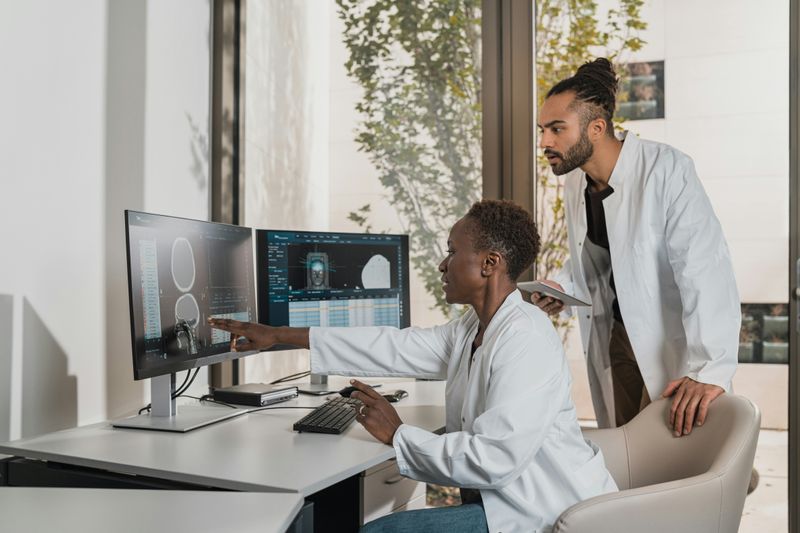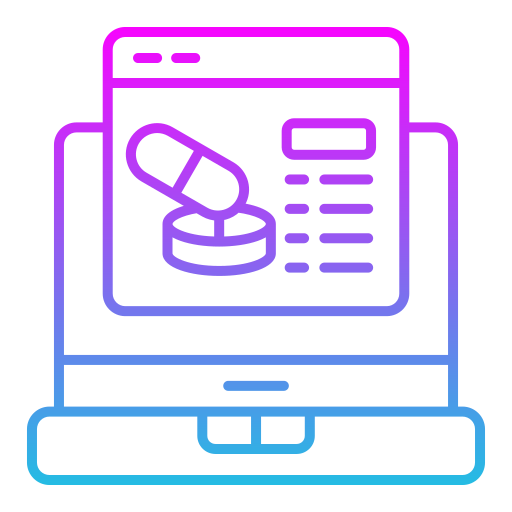
This logo isn't an ad or affiliate link. It's an organization that shares in our mission, and empowered the authors to share their insights in Byte form.
Rumie vets Bytes for compliance with our
Standards.
The organization is responsible for the completeness and reliability of the content.
Learn more
about how Rumie works with partners.
Have you ever been disappointed in a diagnosis or treatment plan?
 Photo by Accuray on Unsplash
Photo by Accuray on UnsplashAccording to a recent report by the law firm Fredland Hawori Valori Gander, 75% of people were misdiagnosed with illnesses such as heart-related, infections, and cancers.
There might be a better way.
AI for healthcare might help you find the best treatment, but it has shortcomings.
Uses of AI for Healthcare

AI tools intervene at different stages of a medical appointment. Examples of their impact include:
Data gathering before a consultation: The system analyzes factors related to your medical history, lifestyle, and existing conditions.
Symptom analysis: The AI tool generates possible diagnoses in real time.
Appointment generation: AI systems in healthcare can schedule follow-up appointments based on the treatment plan.
Creating a personalized treatment plan is one area where AI for healthcare excels.
Did you know?
AI can review a range of documents including electronic medical records, lab results, pharmacy records, and handwritten notes.
Personalized Medicine

What is it?
Personalized medicine aims to make the most accurate diagnostic and treatment plan for an individual by using parameters such as:
Your genetic makeup
Your lifestyle choices
Environmental factors

How is AI used in personalized medicine?
Preventive treatment: AI for healthcare analyzes large databases of genomic data, and doctors use that information to plan preventive individual treatments. For example, imagine you have a relative who has a particular illness. Using AI, doctors can analyze your chances of getting that disease.
Drug discovery: AI can predict the effect of a treatment based on your genetic and molecular profile before you take it. This way, you might get a safer more efficient medicine from the first prescription.
Virtual health assistance: Is it difficult to find a medical appointment? AI virtual aids provide personalized health information, can remind you to take your medicine, and can even suggest lifestyle changes that prevent diseases.
Pros of AI in Personalized Medicine
 Photo by National Cancer Institute on Unsplash
Photo by National Cancer Institute on UnsplashPatients can benefit from AI-powered diagnostics because this technology:
Provides real-time data: AI analyzes medical records much faster than humans, enabling quicker results.
Uses up-to-date data: The technology offers updated, accurate data and research.
Combines data from multiple sources: AI for healthcare integrates information from multiple sources. For example, AI can use lifestyle information stored on your wearable devices in a diagnosis.
Cons of AI in Personalized Medicine

The use of AI for healthcare has its disadvantages. Some of them are:
Lack of impartiality: A diagnosis isn't exclusively based on your physical condition and symptoms. Social, economic, and historical factors impact a treatment plan, and AI disregards those to generate a conclusion.
Lack of accuracy: AI relies on data available from millions of cases. However, there might be a shortage of data for particular illnesses, for some demographic groups, or a lack of consideration for environmental factors, which might lead to a misdiagnosis.
Quiz
You are skeptical about using AI to get a personalized treatment plan. Which factors might the tool overlook?
Social, economic, and historical factors can be overlooked by AI, which makes its assessment incomplete.
Take Action

This Byte has been authored by
Silvia Blanxo
Teacher